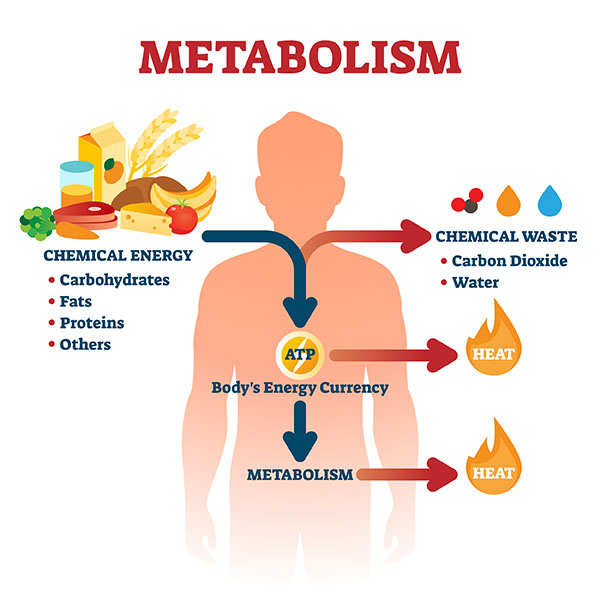

Metabolism is the process of breaking down food into energy. It is the way that our bodies get the energy they need to function.
Metabolism happens in all living things, from plants to animals to people. It is a very important process because without it, we would not be able to move, think, or grow.
There are two main types of metabolism: aerobic and anaerobic. Aerobic metabolism is the process of breaking down food in the presence of oxygen. Anaerobic metabolism is the process of breaking down food in the absence of oxygen.
Aerobic metabolism is more efficient than anaerobic metabolism, but it requires oxygen. Anaerobic metabolism does not require oxygen, but it is not as efficient.
Our bodies use both aerobic and anaerobic metabolism to get energy. We use aerobic metabolism most of the time, but we use anaerobic metabolism when we need to do something that requires a lot of energy, like running or playing sports.
The body's metabolism is responsible for converting food into energy.

Noun: The set of chemical reactions that occur in living organisms to maintain life.
Adjective: Relating to metabolism.
Verb: To metabolise.
The word "metabolism" comes from the Greek words "metabolē" (change) and "metaballein" (to change). The word "metabolism" was first used in English in the 17th century.
The literal meaning of the word "metabolism" is "change of matter". This is because metabolism is the set of chemical reactions that occur in living organisms to convert food into energy and to build up and break down molecules.
What is a metabolism?